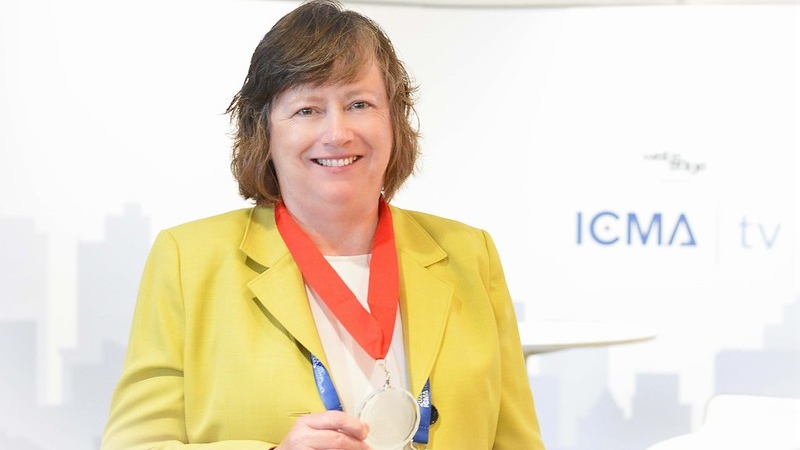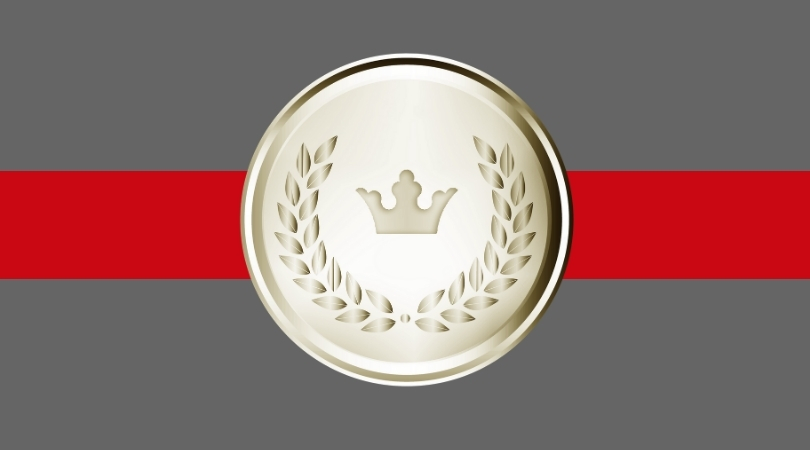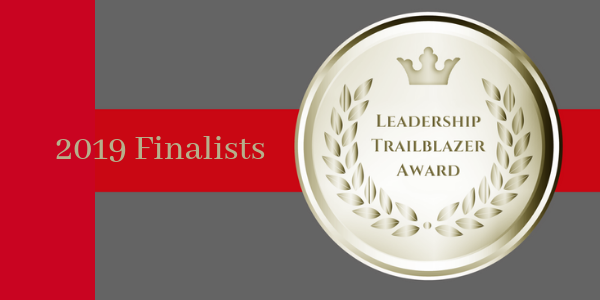Meet the 2022 Leadership Trailblazer Award Winner Anne Marie Gaura
By Polco on October 28, 2022

Gaura has continuously helped other women advance in local government careers. She is a deserving award recipient and addition to the League of Women in Government Hall of Fame.
Anne Marie Gaura, Village Manager for Lincolnwood, Illinois, has spent her career championing other women in leadership roles. At the start of her work in local government, fewer than 15% of women were higher-ups. That number was stagnant for decades. Gaura started the Legacy Project to help solve the problem. The organization helps advance women in local government. Today the leadership gap is closing, due in part to her work.
For her outstanding service, The League of Women in Government and Polco presented Gaura with the The 2022 Leadership Trailblazer Award at the International City/County Management Association (ICMA) conference in Columbus, Ohio. The Leadership Trailblazer Award honors a woman in local government management who supports other women in their careers as well.
We spoke with Gaura about her career, the Legacy Project, and her vision for her own legacy.

See the 2022 Leadership Trailblazer Awards Photo Album
Q: There are more women working in local government today than ever before. Yet data still show few women in the highest level leadership roles. How have you seen this trend over the years?
Gaura: When I started working in government, the number of women who were city managers in the US, according to ICMA data, was 13%. Twenty years later, it was still 13%. That was in 2011. In Illinois, we were at 11%.
I'm proud to say that because of a collective of things happening in society, as of today, 28% of the managers in Illinois are women. So it’s very exciting to see that number. Whatever role the Legacy Project played in that, I am really happy about it.
Q: Tell us about the Legacy Project.
 Gaura: The catalyst for the Legacy Project was a discussion between another village manager in Illinois and myself about wanting to see more women rise to that upper level of city management. It really was born out of questioning how we help each other and how we help the next generation succeed. How do we make that happen? What strategies have been used before that women really haven't taken advantage of? Two of those strategies were building up a network and focusing on training.
Gaura: The catalyst for the Legacy Project was a discussion between another village manager in Illinois and myself about wanting to see more women rise to that upper level of city management. It really was born out of questioning how we help each other and how we help the next generation succeed. How do we make that happen? What strategies have been used before that women really haven't taken advantage of? Two of those strategies were building up a network and focusing on training.
Q: What barriers keep women from seeking leadership roles? How can women advance their careers in local government?
Gaura: I don't look at hurdles. I don't fixate on the negatives because I think they are pathways for success. But if you're going into city management (I know every state is different) you really need your master’s degree.
Whether it is city management or planning or any specialty field in local government, internships are a great foundation to understand what you like or what you don't like and figure out your next steps.
And early on, it’s helpful for women to look for mentors within or outside their organization. Women, men - find whoever is going to help you understand local government better. Mentors are extremely helpful in a career.
Q: How has local government work changed from the beginning of your career until now?
Gaura: Fundamentally the service component (providing quality services and working to improve the quality of life of our residents) has remained consistent. But technology has definitely changed how we communicate. To a certain degree, emails are being replaced by text messages because of the sense we must do things even quicker. Because we live in a text society, people expect things instantaneously.
Technology has also changed how we manage. Data-driven decision-making is very big. And because of technology, everything is much more transparent. You have to be open and appreciate the transparency because, in local government, we serve the public. They want to know how we operate. So we put as much information out there for them to understand how we provide that service delivery.
What would you like your legacy to be?
Gaura: A big part of it is positively helping employees, those I've worked with directly, the communities I’ve served, and those I've helped indirectly. I will get calls or questions from people who work in other communities and I enjoy being able to provide them guidance.
More than anything, my focus has always been on hiring, developing, and promoting a diverse workforce. We need to make sure in local government that our employees represent our communities or our society as a whole. I've been fortunate to work with a vast array of very talented people of different backgrounds.
I also hope someone would say of my legacy, “when she left here it was better than when she started.” But my main goal is to make a positive impact on helping others.
Related Articles
Popular posts
Sign-up for Updates
You May Also Like
These Related Stories

How Local Government Mentorship Advances Careers and Bridges Leadership Gaps

Celebrating Women Local Government Leaders in a Year When Leadership Really Matters

